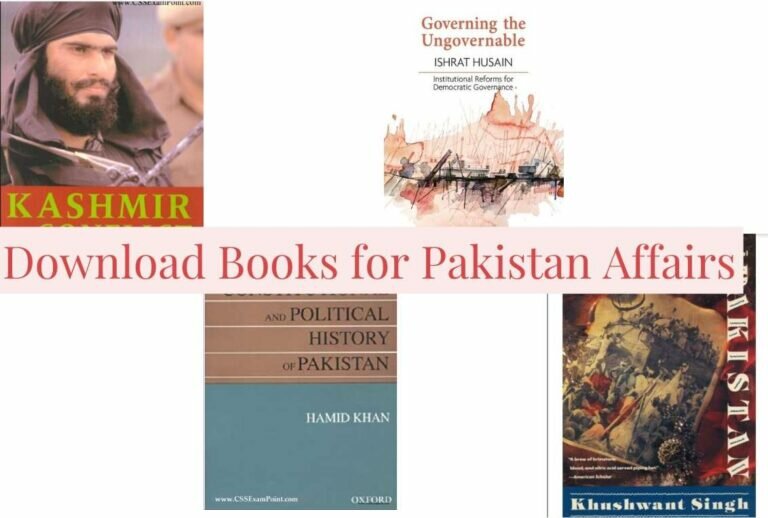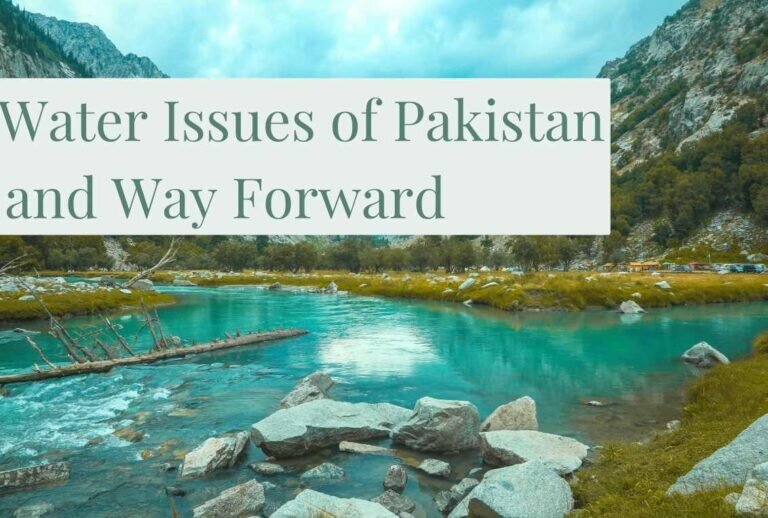Why Pakistan is Important for the World?
This article aims to focus on why Pakistan is important to the world. This country is significant on the global stage for a number of reasons. Located at the crossroads of South and Central Asia, it has a strategic location that makes it a key transit point for trade and energy resources in the region. As one of only nine countries in the world with nuclear weapons, it has a significant level of influence in international relations. With over 235 million people, Pakistan is the world’s fifth-largest population. It is the second-largest Muslim-majority country, giving it a central role in the Islamic world. It is also a major producer of cotton, wheat, and rice.
A growing middle class is making it an important player in the global agricultural market. It is presenting opportunities for trade and investment. Additionally, Pakistan has a long history of a strategic alliance with the US and has played a key role in the fight against terrorism in the region.

Now, we will discuss one by one Pakistan’s importance to the world:
1. Geopolitical Significance
Pakistan is located in South Asia, at the crossroads of Central Asia, the Middle East, and the Indian subcontinent. Its strategic location has made it an important transit point for trade and energy resources in the region. Pakistan is home to the Arabian Sea, which is an important shipping route for the Middle East and beyond. It connects the Persian Gulf to the Indian Ocean. The country also has land borders with India, China, Afghanistan, and Iran. These all have historically been important trade routes. Pakistan’s location has made it a hub for trade and commerce, as well as a target for foreign influence and invasion throughout its history.
2. Nuclear Power
Pakistan is believed to have around 160 nuclear warheads. Its nuclear capability has given it a significant level of influence in international relations. It has made it a key player in global efforts to address nuclear proliferation. As one of only nine countries in the world with nuclear weapons, Pakistan’s possession of nuclear weapons has made it a subject of international attention and concern.
Pakistan’s nuclear weapons are believed to be primarily aimed at deterring its regional rival, India, which also has nuclear weapons. The two countries have a long history of conflict and tensions. They have fought several wars since their independence in 1947. The possession of nuclear weapons has helped to stabilize relations between the two countries. It is because nuclear capability has given both sides a greater sense of security. It also has made the prospect of war less likely.
Pakistan’s nuclear capability has also made it a key player in international efforts to address the proliferation of nuclear weapons. It has also been an effective source to prevent the spread of nuclear technology to other countries. The country has participated in negotiations and agreements related to nuclear nonproliferation and has worked with the international community to address issues such as disarmament and arms control.
Also Read: Nuclear Politics in South Asia
3. Demographic importance
Pakistan is the world’s fifth-largest country by population, with over 235 million people. It is also the second-largest Muslim-majority country in the world, after Indonesia. This gives Pakistan a central role in the Islamic world and makes it an important market for Muslim-majority countries in the Middle East and beyond.
Pakistan’s large population and growing middle-class present both challenges and opportunities for the country and the world. On the one hand, Pakistan’s large and rapidly growing population puts strain on the country’s resources and infrastructure. On the other hand, Pakistan’s large population and growing middle class also present opportunities for trade and investment. There is a large market for goods and services within the country.
Pakistan’s demographic importance also gives it a significant role in regional and global politics. As a large and influential Muslim-majority country, Pakistan has the ability to shape public opinion and influence policy decisions in the Islamic world and beyond.
4. Agricultural Significance
Pakistan is a major player in the global agricultural market, with a diverse range of crops that are important for both domestic consumption and export.
key crops of Pakistan
- Wheat: Pakistan is the world’s fourth-largest producer of wheat. It is also a major exporter of grain. Wheat is a staple food in Pakistan and is an important source of income for farmers in the country.
- Rice: Pakistan is the world’s ninth-largest producer of rice, and is a major exporter of grain. Rice is an important food crop in Pakistan and is grown in both irrigated and rainfed areas of the country.
- Cotton: Pakistan is the world’s fourth-largest producer of cotton, and is a major exporter of the commodity. Cotton is an important cash crop in Pakistan, and is used to produce a range of products including textiles, clothing, and household goods.
- Sugarcane: Pakistan is a major producer of sugarcane, which is used to produce sugar, molasses, and ethanol. Sugar is an important food commodity in Pakistan. It is also used as an input for a range of other products.
It is an important source of foreign exchange, as Pakistan exports a significant volume of agricultural products to other countries.
5. Economic Importance
Pakistan is the 44th largest economy in the world, with a GDP of over $348.3 billion in 2021. It has a diverse economy, with a mix of agriculture, manufacturing, and service sectors. Some of the key industries in Pakistan include textiles, pharmaceuticals, steel, and telecommunications. Pakistan is an important market for a range of goods and services. This presents opportunities for trade and investment, both from within the country and from other countries. Pakistan is a member of the World Trade Organization and has trade agreements with a number of other countries. These agreements have helped to facilitate trade and investment flows into and out of the country.
Pakistan is also an important source of raw materials and intermediate goods. It produces a range of agricultural, mineral, and energy resources that are used in global supply chains. These resources include cotton, wheat, rice, sugarcane, coal, oil, and natural gas. Pakistan’s economy has faced a number of challenges in recent years, including high levels of debt, low growth, and high inflation. The country has been working to address these challenges and improve the business environment in order to attract investment and stimulate economic growth.
6. All-Weather Friendship with China
Pakistan has a long all-weather friendship with China, which is one of its closest allies and trading partners. The two countries have a history of cooperation in a range of areas, including defense, economics, and diplomacy.
One key aspect of the China-Pakistan relationship is the China-Pakistan Economic Corridor (CPEC). It is a multi-billion dollar infrastructure project aimed at linking Gwadar Port in Pakistan with China’s Xinjiang region. The CPEC is seen as a key part of China’s Belt and Road Initiative, which aims to promote economic development and connectivity in countries around the world.
The importance of the China-Pakistan relationship for the world lies in the potential for economic development and regional stability that it could bring. By improving connectivity and economic ties between China and Pakistan, the CPEC could help to boost economic growth and development in both countries, as well as in the wider region. Additionally, the strong relationship between China and Pakistan could also contribute to regional stability by helping to counterbalance the influence of other powers in the region.
Conclusion
In conclusion, Pakistan is important to the world for several reasons. Its geographical location, agricultural importance, economic contribution, and demographic importance put their contribution in its importance. Overall, Pakistan’s importance to the world lies in its potential to contribute to economic growth and stability in the region.







